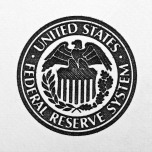Foreign banks held to same strict standards as U.S under financial reforms
The U.S Federal Reserve has approved plans to impose the same strict banking regulations on British banks operating in America as domestic banks. The Obama administration has been reforming the U.S financial administration and under the new rules foreign banks will be required to hold extra funds in America instead of their home country.
Additionally banks will have to establish a U.S intermediate holding company which will then be required to comply with the same capital requirements as American banks. Major British banks such as Barclays, Royal Bank of Scotland, HSBC and Standard Chartered could all be affected by the change.
The Global Financial Markets Association represents national and global financial institutions around the world and has argued that the Federal Reserve’s new rules would harm the global economy by risking global instability. In effect the changes will “ring-fence” capital and liquidity in the U.S, meaning that non-US banks will no longer be able to take advantage of Federal Reserve emergency loans as happened during the 2008 financial crisis.
A “long-standing policy of national treatment and equality of competitive opportunity between the US operations of foreign banking organisations and US banking firms” is held by the Federal Reserve and chair Janet Yellen said that these new rules would enforce consistent standards for all banks operating in the country.
Some adjustments have been made to make the transition slightly easier for objecting foreign banks, for example, the threshold for requiring a US intermediate holding company is increased from $10 billion to $50 billion of US non-branch assets. Foreign banks must comply with the new regulation by July 1, 2016, an extension of 12 months from the initial proposed date, and American bank holding companies must comply by January 1, 2015.
